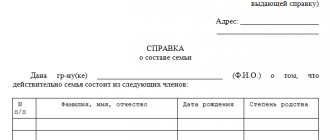General information about inheritance of cash deposits
Grounds for inheritance
The rights and conditions for receiving property as an inheritance are regulated by Part 3 of the Civil Code of the Russian Federation. According to the law, inheritance is registered according to a will or in the order of succession . If we are talking about a bank deposit, then its acceptance can be carried out on the basis of an order drawn up by the owner of the account at the financial institution.
The procedure for registering a deposit in the event of the death of the depositor is practically no different from inheriting various types of property.
Important! The successor will be able to receive the savings of the deceased if all the conditions for entering into an inheritance are met, and documents and a certificate of inheritance are provided.
Conditions
Citizens specified in a will or in a bank order can receive a deposit. If these documents were not drawn up by the account owner during his lifetime, then the savings are transferred to the family members of the deceased in order of priority.
According to the law, the following cannot inherit the property of the deceased:
- citizens responsible for the death of the testator;
- persons who put pressure on the testator for personal gain;
- parents deprived of parental rights (if the testator is their child);
- persons evading the duties of maintaining incapacitated parents.
Testamentary disposition
People often make sure that after their death, their heirs can easily withdraw funds from their savings book. To do this, a person prepares a testamentary disposition in the bank when registering a deposit. The paper is signed by the account holder and the bank employee. The document has legal force equal to a will certified by a notary.
The order indicates the names of relatives and the amount of the amount due to each (if there are several successors). It will be valid after the notary draws up a document accepting the inheritance.
Procedure for receiving funds:
- Presentation of the passport by the heir to the bank employee.
- Submission of testamentary disposition.
- Presentation of a notarized certificate of the right to inheritance.
The banking institution is contacted no earlier than six months after the death of the deposit owner.
Acceptance of funds by law and other means
Bank savings can be inherited in three ways:
- in law;
- by will;
- by bank order.
Video about how you can inherit a bank deposit:
In law
Legal inheritance is carried out in the absence of a disposition and a will. The Civil Code provides for 8 lines of successors:
- Mother, father, children.
- Sisters and brothers, grandparents.
- Uncles and aunts.
- Great-grandparents.
- Great-aunts, grandfathers, grandchildren.
- Cousins and uncles, nephews, great-grandchildren.
- Non-natural mother and father, stepsons and stepdaughters.
- Incapacitated persons who were in the care of the deceased.
The savings of the deceased are transferred to the successors of the subsequent line in the absence of persons of the previous one. The funds are distributed among legal successors in equal parts.
Video explaining the successor queue:
By will
If the account owner has drawn up a notarized will, then the savings go to the persons specified in the will. The account owner has the right to appoint any person or legal entity as a successor to the funds, regardless of family ties and other circumstances.
Article 1149 of the Civil Code of the Russian Federation also defines persons entitled to an obligatory share in the inheritance, which include:
- children of the deceased, under 18 years of age;
- disabled adult children;
- spouse recognized as disabled;
- dependents.
Video about who is entitled to a mandatory share in the inheritance:
They enter into an inheritance regardless of what is written in the will and which legal successors were identified in the document. By law, they are entitled to at least 50% of the entire inheritance, which would have been accepted by them if they inherited by law.
By testamentary disposition
Unlike other property, cash deposits can be inherited by testamentary disposition . Such a document is drawn up by a person when opening a bank account or any other time during which the agreement with the bank is valid. The account owner, at his discretion, can indicate in the order of the people to whom the savings will pass after his death.
Receiving an inheritance of a cash deposit by order drawn up at the bank has a number of features:
- Just as in the presence of a will, a bank order provides by law for the entry into the inheritance of persons who have obligatory shares.
- If the document indicates a minor citizen, then he will be able to receive savings only when he reaches 18 years of age.
- If the account owner made an order in the bank, and later executed a will with a notary, in which he changed the list of legal successors and their shares, then the order becomes invalid in whole or in part.
- According to the Civil Code of the Russian Federation, savings can only be received after six months from the moment of death. However, the law provides for an exception if relatives need money for a funeral. Family members of the deceased and heirs can receive funds (the maximum allowable amount is 40 thousand rubles) to pay for funeral services without waiting 6 months.
- If the contribution is jointly acquired property, then upon the death of one of the spouses, half of the money is due to the second. The remaining amount is divided according to the terms of the order.
- If the testator indicated a list of legal successors in the order, but did not register their shares of the inheritance, then the savings pass to the heirs in equal shares.
Registration process
Receiving an inheritance is possible in two ways: by registering your right with a notary or by actually accepting it. In the first option, you, as the receiver, need to prepare a package of documents and contact the notary office at the place of last residence of the testator.
The actual entry into inheritance does not require the recipient to register his right to property with a notary. It is enough to use and bear responsibility for the property of the deceased, having demonstrated his actions within 6 months from the date of death of the testator. But if you can live in an apartment without registering property rights, then receiving an inheritance from Sberbank without registering an entry is impossible.
Step one: contact a notary
How to receive an inheritance from Sberbank? In order to formalize your rights to the property of a deceased relative, you must contact a notary office. The recipient of the deposit and other property needs to fill out an application for entry. This can be done either with a notary or by sending a certified document by mail if it is impossible to contact the right specialist.
You must contact a notary no later than 6 months from the date of death of the testator.
To register inheritance rights, you need to prepare the following package of documents:
- Passport of the applicant, application for membership.
- Death certificate of the testator, certificate of his last place of registration.
- Documents on the ownership of the property of the deceased, including bank agreements for opening a deposit or account.
- A will or documents indicating the degree of relationship.
In the absence of a banking agreement, the notary can independently make a request to the financial institution, receiving all possible information about the accounts and the place of their storage from the receivers.
The process of reviewing an inheritance case by a notary lasts six months from the moment it is opened. After this period, the lawyer will issue to all recognized receivers a certificate of inheritance indicating the share due to each.
Remember that any citizen may not accept an inheritance by missing the deadline for entry or writing a refusal.
Step two: contact Sberbank
After confirming your right to inheritance, you can contact the bank branch where the deceased opened a deposit or account. Receiving deposits by inheritance at Sberbank requires the recipients to have documents, the set of which may vary depending on the situation:
- Applicant's passport, certificate of inheritance.
- Document on division of shares if there are several recipients.
- A court decision if the inheritance took place in court.
- Bank documents of the deceased - if available (agreements, passbooks).
You can receive funds from the deposit of the deceased on the basis of a notary’s decree if the heir needs to reimburse his funeral expenses.
If there is a will drawn up earlier than March 1, 2002, the recipient can receive money from the account by inheritance without a certificate of entry.
Registration procedure
The process for registering a monetary contribution to an inheritance is as follows:
- contacting a notary.
- Obtaining a certificate of inheritance.
- Contacting the bank.
The procedure depends on how the successor enters into the inheritance - by law, by will or by testamentary disposition.
Where to contact?
Regardless of how a person enters into inheritance, he needs to contact a notary to obtain a certificate of entry into inheritance rights.
To find out which notary office the deceased was attached to, you can contact the notary chamber of the city in which he lived and find out this information there. Another way is to go to any notary and find out the location of the specialist you are looking for from him.
Reference! According to Article 1154 of the Civil Code of the Russian Federation, the right to inheritance must be registered within 6 months after the death of a person.
If this period is missed, the bank deposit is recognized as escheated property and transferred into the possession of the state or municipality.
However, an heir who has missed the deadline for entering into rights can restore it in court.
Drawing up an application
An application for acceptance of inheritance must be submitted to the notary's office. You can take the form from a notary and fill it out on the spot or fill it out yourself by downloading it from the Internet.
The application contains the following information:
- In the header of the document - the address of the office and the full name of the notary, the applicant's full name, address and contact information.
- The title is “Application for Acceptance of Inheritance.”
- The body of the document contains information about the testator: date of death, place of residence, date of birth, full name, death certificate number.
- Full name of the applicant.
- Method of accepting inheritance.
- Request for a certificate.
- Date and signature.
Package of necessary documents
Along with the application, the notary must provide:
- passport;
- papers confirming the relationship with the deceased (if inheritance is carried out by law);
- death certificate;
- will (if written);
- agreement with the bank (if the applicant has one).
Contacting the bank
After 6 months after the death of the account owner, the notary issues a certificate to the heir. Only after receiving it can he apply to the bank to receive his share of the deceased’s savings.
You need to provide the following documents to the bank:
- certificate of inheritance;
- passport;
- agreement on the division of property in which shares are determined (if there are several legal successors);
- court decision (if a person was recognized as an heir as a result of legal proceedings).
Attention! If the legal successor inherits savings under a testamentary bank order, and the deceased’s account was opened before March 1, 2002, then he does not need to obtain a certificate from a notary. In this case, the deposit can be withdrawn by testamentary order by presenting only a passport.
Duration of the procedure
You can receive a certificate of the right to inherit a cash deposit and other property after 6 months after the date of death of the account owner. Access to the deposit is opened depending on which bank the account was opened with. On average, the procedure for reviewing an application at a bank for receiving a deposit by inheritance lasts from 1 to 3 days.
State duty and other expenses
According to Article 333.38 of the Tax Code of the Russian Federation, citizens who inherit bank deposits are exempt from paying state duty.
Costs may arise during the technical and legal registration of an inheritance with a notary:
- 50 rub. for a request to the bank in order to find the inherited deposit and the bank in which it is located (if the heir is not aware of the location of the savings);
- about 1000 rub. – for the legal and technical work of a notary;
- 100 rub. – certification of the application for a certificate;
- 100 rub. – duplicates and copies of documents.
On average, receiving a deposit as an inheritance will cost 1000-1500 rubles.
How to receive money from a will in Sberbank
To receive funds from the testator's deposit, the testator must:
- Contact a notary.
- Write an application for acceptance of the inheritance and issuance of a certificate of right to it.
- Submit the necessary documents to the notary*.
- Receive a certificate of right to inheritance within the time period appointed by the notary.
- Appear with a certificate of death of the testator and the right to receive his deposit at the bank branch that opened the inherited account.
- Make a decision on the future fate of the deposit - withdraw it, prolong its validity, or wait until the end of the deposit period (the heir has the right to request the release of money even before the expiration of the deposit, losing most of the interest on it).
- Based on the decision made in the previous paragraph, renew the agreement on storing funds or ask for their release (transfer to another current account of the heir).
* - list of documents required when registering an inheritance with a notary:
- identity card of the heir;
- death certificate of the testator;
- a certificate of deregistration of the deceased at his last place of residence (less often - a document indicating the location of the most valuable real or movable property, an act of valuation of such property);
- will (if the successors were unable to find a copy of the testator, they can contact any notary and ask him for information about the place of storage of the duplicate act).
It is not necessary to present the agreement for opening an inherited account to a notary. An authorized person has the right to find out about the presence and condition of the deposit by submitting a request to the bank branch indicated by the heir.
Attention! According to para. 4 p. 5 art. 333.38. According to the Tax Code of the Russian Federation, the state duty for issuing a certificate of right to a bank deposit is not charged to the heir.
Possible difficulties
The inheritance procedure is often associated with some difficulties:
- Missing the application deadline;
- disagreements between legal successors, which may result in a lawsuit;
- refusal of the bank to receive savings legally.
The successor can defend his interests in court. If they missed the deadline for entering into an inheritance, then they can only restore it through the district court.
On our website you will find information not only on how to correctly inherit a bank deposit, but you will also be able to familiarize yourself with the rules of inheritance of various real estate, apartments, houses, land plots, businesses, cars, and you will also be able to find out whether it is possible to inherit a savings account. part of the deceased's pension.
If the bequest is in the bank
The inheritance of a bequeathed deposit kept in a bank has a number of features:
- The bank is not obliged to notify the relatives of the deceased about the presence of a deposit. If the legal successors do not know about the existence of the bank account, then the funds, upon expiration of the statute of limitations, will be recognized as escheated property and transferred to the state.
- Legal successors have the right to leave inherited savings in the account, transferring it to themselves, or withdraw these funds.
Deposits in foreign banks are inherited according to the rules provided for by the laws of the state in which the financial institution is located. The size of the property due and the conditions for entering into rights will be influenced by the legislation of a particular country. Registering an inheritance deposit in a foreign bank is often associated with the difficulty of finding it. To find out in which country and which institution the funds are located, you need to contact an account tracing organization.
The procedure for receiving funds from a bank deposit is practically no different from the generally established inheritance procedure. The only differences are the absence of state duties and the ability to enter into rights by bank order. The most important thing is not to miss the 6-month deadline for contacting a notary, otherwise you will have to restore your right in court.










